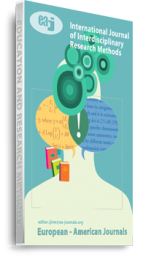This study investigated the relationship between self-esteem, locus of control and academic underachievement among some secondary school adolescents. The study was carried out in Rivers State secondary schools. Purposive sampling techniques were used to draw a sample of 240 students identified as underachievers. Bakare’s (1977) progressive matrices adopted from Uwazurike (2008) was used to identify students with high mental ability while Basic Education Certificate Examination results of 2016 which is a cumulative record of examination and continuous assessment scores of the students’ three years in school, was used as a measure of students’ academic ability. Based on the attained mental ability performance and academic achievement of the students, the academic underachievers were identified. The various independent variables of the study were measured with a questionnaire whose reliabilities were statistically determined with Cronbach Alpha and reliability coefficients ranging from 0.51 to 0.74. The research questions were answered with mean and Pearson product moment correlation (r) while the null hypotheses were tested with special Z to determine the significance of r. It was found out that there was a very low relationship between self-esteem, internal locus of control, external locus of control and academic underachievement which showed no statistical significance. Based on the findings, three relevant recommendations were made.
Keywords: Academic, Students, Underachievement, locus of control, self-esteem

